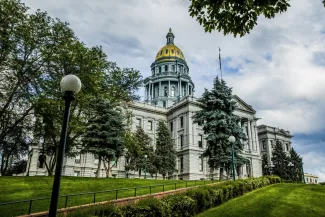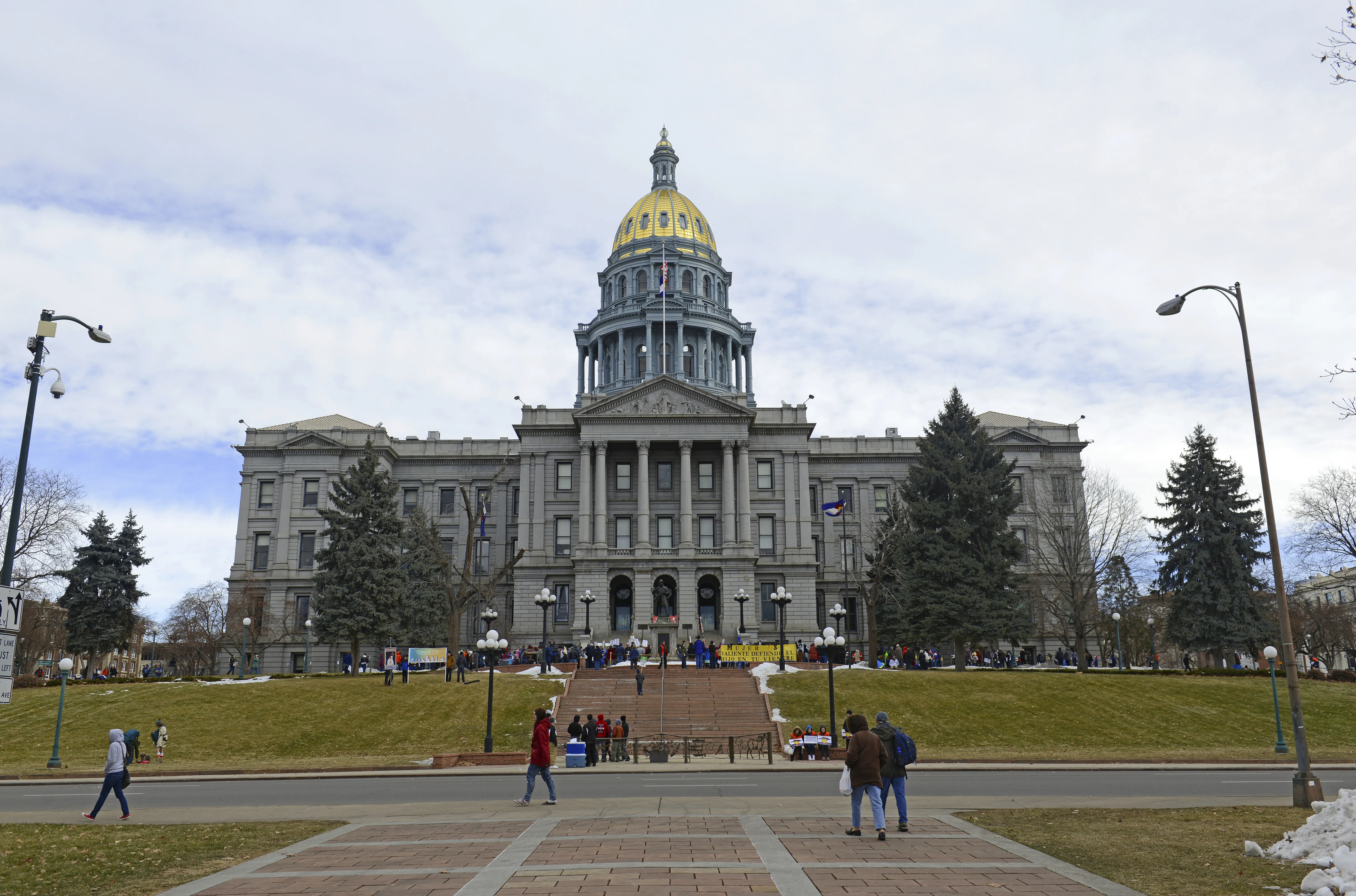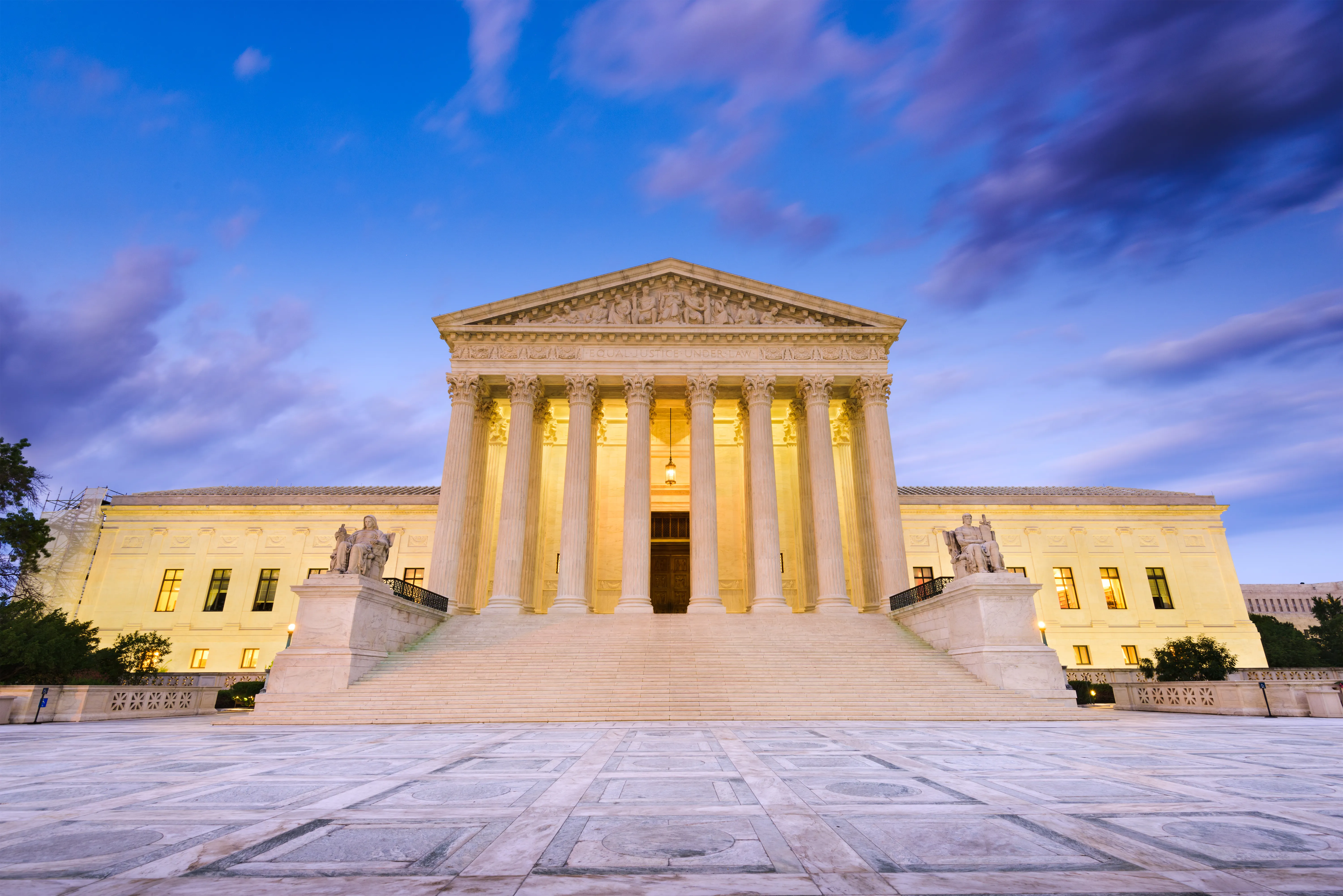
Federal megabill likely to result in cuts to ‘real services’ for Coloradans
© JJ Gouin - iStock-1642293566
Colorado state leaders and Democratic lawmakers warned of the budgetary impacts from the federal tax break and spending cut bill in the months leading up to its passage, saying it will devastate the state’s Medicaid program, drastically reduce nutritional assistance for families and blow a hole in the budget that the state can not absorb.
The bill, signed by President Donald Trump on July 4, includes trillions of dollars of tax cuts, temporary tax deductions for overtime and tipped income and about $170 billion for increased immigrant detention and deportations.
It also slashes spending for social safety net programs like Medicaid and food stamps — programs that are a cost share between states and the federal government — and rolls back Biden-era clean energy tax incentives.
Now that the bill is law, Colorado leaders are parsing the language to better understand the fallout. It could reduce state revenue by hundreds of millions of dollars per year.

© fotoguy22 - iStock - 1468912821
One state lawmaker who helps write the budget says state leaders have no more room to trim around the margins and predicts they will be forced to make cuts in core areas of spending.
“We will have to see to what extent we need changes in our law to be responsive to what we’re seeing coming in that bill. And each of the different agencies (are) going through that bill now trying to figure out exactly the answer to that question,” Rep. Shannon Bird, a Westminster Democrat who sits on the Joint Budget Committee, said.
The goal is to figure out what needs to be addressed now — potentially through a special legislative session or when the Legislature reconvenes next January — and what can wait.
“Governor Polis has been open about the sad reality that the state can’t make up for the funding that President Trump and Republicans are taking away from Coloradans,” Polis spokesperson Shelby Wieman wrote in an email. “The governor has previously indicated we may need to reconvene the General Assembly to deal with the terrible impacts from the bill, and we are still reviewing the impacts of this new law to evaluate next steps, including a potential special session.”
Many of the law’s provisions around Medicaid, such as increased eligibility checks, new work requirements and changes in the provider tax rules, do not go into effect for more than a year. But state officials predict they will need to hire thousands more employees to implement the new bureaucratic processes.
The Kaiser Family Foundation predicts that federal spending on Medicaid in Colorado will drop between $11 billion and $18 billion over the next decade.

In a post to X on Monday, the House Republican caucus rejected the claim that the federal bill has unnecessary cuts to Medicaid.
“The so-called cuts refer to a change in how much the federal government contributes. It does not mean a reduction in the quality of care or access to Medicaid,” the post says. “If the state reprioritized its spending, it could easily fill the gap left by a smaller federal match while avoiding any impact on patients.”
Democrats in the state Legislature control strong majorities in the House and Senate.
The Colorado Fiscal Institute estimates that the Medicaid cuts will cost the state about $660 million, based just on the tally of people who may lose coverage, and not other administrative costs.
“I think it’s really hard for people to see this really big bill and understand that it is not going to immediately have an impact, but when it does, it’s going to be really terrible,” said Caroline Nutter, CFI’s legislative and policy manager.
There will be cuts to real services that people expect.
This year, lawmakers worked to craft and pass a state budget that made up a $1.2 billion hole, largely caused by ballooning costs for Medicaid and other state programs, as well as slowing inflation. They paused or eliminated new programs, shifted spending timelines for transportation projects and restricted new spending. The next budget, which will face the same issues as this year’s compounded with the federal spending bill impact, will be much more difficult to write.
“There will be cuts to real services that people expect,” Bird said. “A lot of what we were able to cut last year were programs that I wouldn’t say were the most crucial for people getting mental health care or access to regular health care. I think that this round of cuts this year will be cutting into key programs that people actually depend upon.”
Bird said there are no obvious places in the state budget to cut.
“If you cut (the Department of) Corrections, that could be devastating. If you cut the courts, then that’s people’s access to justice. That would be devastating. If you cut child welfare, that’s hurting kids,” she said. “But these are the questions we’re going to have to be addressing. And these are the cuts I don’t want to make.”
TABOR limitations
Sen. Barbara Kirkmeyer, a Brighton Republican who also sits on the JBC, said that Colorado’s budgetary challenges predate the federal bill.
“The problem is that Democrat lawmakers and the Governor have been on a spending spree for years with hardworking Coloradans required to pay the bill,” she said. “My strategy remains the same: to protect and fund critical priorities such as health care, public safety and education. In the short term, it’s time to ground the kids and take away the credit cards. In the long term, we need to get a clear understanding of what (the bill) does, instead of just attempting to scare people to death.”

© zimmytws - iStock-511889079
Joshua Mantell, director of government affairs at the left-leaning Bell Policy Center, said there is “very little margin” for the state to pick up costs of federal cuts. He attributed this to the limitations of the Colorado Taxpayer’s Bill of Rights, a constitutional amendment that requires the government to return money to taxpayers when revenue exceeds a cap determined by inflation and population growth and mandates voter approval for new taxes.
“Unlike other states, which have the ability to balance tax revenue and spending, we only have one lever that we can push in Colorado, and that is to cut spending,” Mantell said.
Mantell suggested that lawmakers should consider changing the tax code in Colorado to increase taxes on the wealthy, better situating the state budget. But he added that TABOR limits most revenue-increasing steps that can be taken.
“We really need to be thinking about whether we need to ask the wealthy to pay a little bit more in taxes to be able to manage these cuts that are coming in, and ensure that Colorado is not being dictated to by the federal government and the Trump administration on what to do,” Mantell said. “We need to be able to chart our own path for the people in this state.”
















